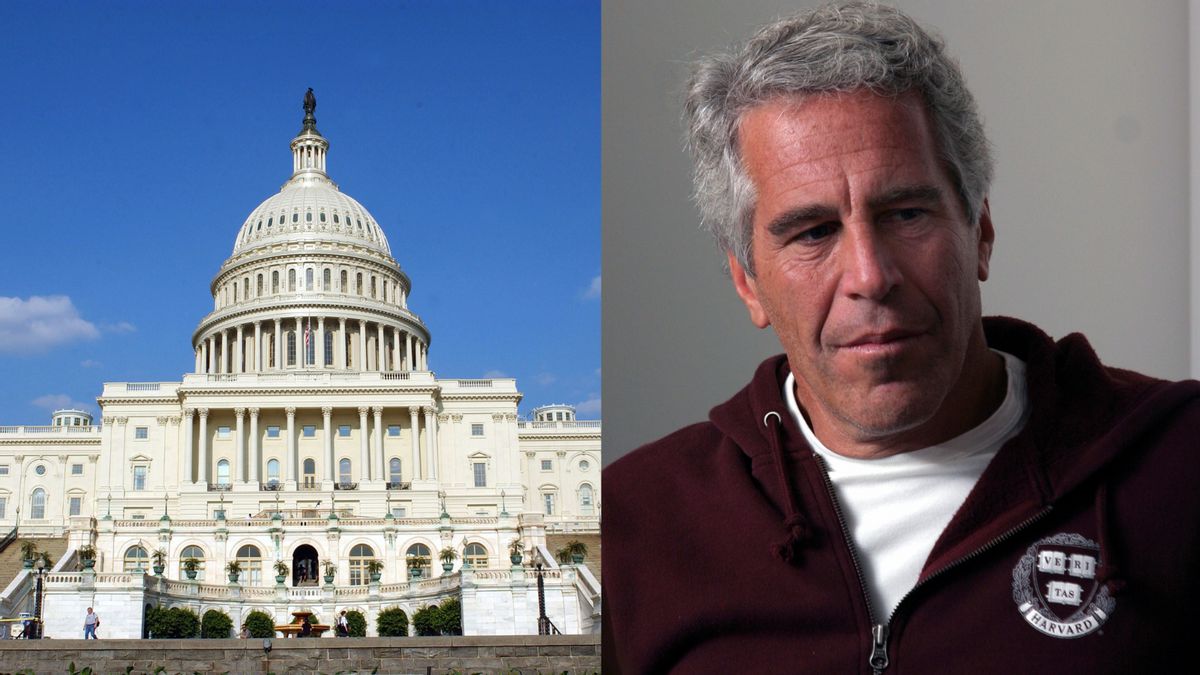
Republicans in the U.S. House of Representatives blocked a legislative amendment that called for the Department of Justice to release files pertaining to convicted sex offender Jeffrey Epstein.
In mid-July 2025, claims circulated that Republicans in the U.S. House of Representatives voted against introducing a legislative amendment that called for the Department of Justice to release files pertaining to convicted sex offender Jeffrey Epstein.
The claims circulated after President Donald Trump and Attorney General Pam Bondi faced backlash from some supporters for conflicting statements on the existence of files Epstein allegedly kept on his famous clients.
Users on social media platforms such as X (archived), Instagram (archived) and Facebook (archived) shared the rumor online, with some purporting that it was a “narrow 5‑6 vote” while others asked, “what are they hiding?”
The claim that Republicans blocked a legislative amendment calling for the DOJ to release the Epstein files is true, though some details about the voting results in some versions of the claim are incorrect. Two votes pertaining to the amendment in question occurred during a House Rules Committee meeting on July 14, 2025, viewable on YouTube.
The meeting was held in part to discuss the so-called Genius Act, which aims to offer protection to traders of cryptocurrency by establishing a “regulatory framework,” according to the bill. The proposed Epstein-related amendment was offered by Rep. Ro Khanna, a California Democrat, and introduced to the committee by the committee’s ranking Democratic member, Rep. Jim McGovern of Massachusetts.
About five hours into the July 14 committee meeting, McGovern introduced “Amendment 50,” which “would require the attorney general to preserve and release any records related to Jeffrey Epstein,” according to the official record.
The vote was to determine whether it should be allowed to go before Congress as part of the larger bill.

(House Rules Committee Record)
Though Epstein and cryptocurrency regulation are seemingly unrelated, the House Rules Committee “has the authority to do virtually anything during the course of consideration of a measure, including deeming it passed. The Committee can also include a self-executed amendment which could rewrite just parts of a bill, or the entire measure.”
The introduction of the proposed amendment was met with debate from both sides of the political aisle. Democrats argued for “transparency” from the Trump administration and condemned their “backtracking” on the issue of the Epstein files.
Republicans made the argument that matters concerning the Genius Act were not the appropriate forum to deal with the issue proposed in the amendment, to which McGovern later responded, “You guys are twisting yourselves in knots to avoid dealing with this issue.”
Ultimately four Democrats and one Republican voted “yea” and the remaining seven Republicans voted “nay.” South Carolina Rep. Ralph Norman was the one Republican in favor, and Republican Texas Rep. Chip Roy did not vote.
Following the tally of the vote, Rep. Virginia Foxx of North Carolina, the committee’s Republican chairwoman, said, “I think most of us believe what is appropriate will be released when it is time for the president to release it.”
Khanna later posted to X (archived): “Rules voted 5-7 to block the full House from voting on my amendment to have a FULL release of the Epstein file. People are fed up. They are fed up. Thanks @RepRalphNorman. Need to put the American people before party!”
However, McGovern brought forth a similar amendment immediately following the first vote.

(House Rules Committee Record)
The official record stated the amendment would affirm “Congress’s Article I authority to conduct oversight, demands that the Trump Administration release the Epstein files, calls on the Department of Justice and FBI to submit a report on any delays, suppression, or destruction of evidence related to the files, and supports full transparency and access to these documents in the interest of justice and accountability.”
Before the vote on the new amendment, Democratic Rep. Joe Neguse of Colorado thanked Norman for siding with the Democrats on the initial vote.
Neguse said, “Just to be clear, that last vote, four Democrats, joined by one Republican — Mr. Norman — ultimately voted in favor of an amendment that would ensure the release of these files.”
Before concluding he added, “I think this vote provides another opportunity for our colleagues on the other side of the aisle… to perhaps join Mr. Norman in voting in favor of releasing the files.”
However, the second tally revealed Norman sided with his Republican colleagues, leaving the vote at a wider margin of 4-8, with Roy again not voting.









